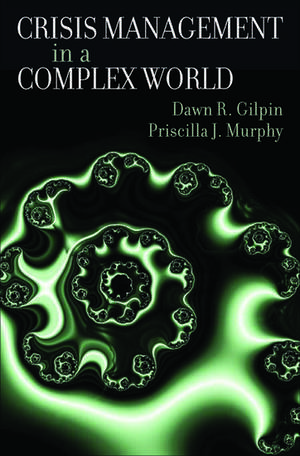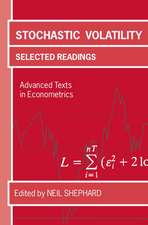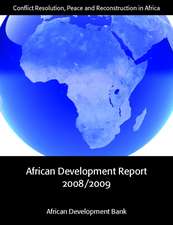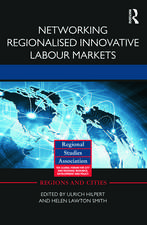Crisis Management in a Complex World
Autor Dawn R. Gilpin, Priscilla J. Murphyen Limba Engleză Hardback – 14 aug 2008
Preț: 345.83 lei
Preț vechi: 450.92 lei
-23% Nou
Puncte Express: 519
Preț estimativ în valută:
66.18€ • 70.76$ • 55.18£
66.18€ • 70.76$ • 55.18£
Carte tipărită la comandă
Livrare economică 07-14 aprilie
Preluare comenzi: 021 569.72.76
Specificații
ISBN-13: 9780195328721
ISBN-10: 0195328728
Pagini: 224
Ilustrații: 2 line illustrations
Dimensiuni: 236 x 157 x 20 mm
Greutate: 0.45 kg
Editura: Oxford University Press
Colecția OUP USA
Locul publicării:New York, United States
ISBN-10: 0195328728
Pagini: 224
Ilustrații: 2 line illustrations
Dimensiuni: 236 x 157 x 20 mm
Greutate: 0.45 kg
Editura: Oxford University Press
Colecția OUP USA
Locul publicării:New York, United States
Recenzii
As I grow older I find the most impressive academic contributions are those which rouse a feeling of aha! They completely overturn conventional wisdom, but, in retrospect, seem such obvious common sense. This book is one such contribution. And, although complexity theory is notoriously tough to turn into useful applications, Gilpin and Murphy provide clear guidelines
This text is an exciting contribution to understanding crisis management beyond the many simplistic and over-used process-generated solutions in the field. For too long crisis management has suffered from superficial theoretical treatment. This text provides scholars and students with a theoretical approach that goes beyond the traditional conflict management model. Applying complexity theory to the field of crisis management will go a long way to rectify this situation and is one of the most significant theory development in the field. This text provides an alternative perspective of how to deal with a crisis, proposes an alternative explanation of why crises develop as they do, and produces an understanding of the unexpected outcomes that often accompany them.
Since the early 1980s, academics and scholars have devoted endless hours and pages to discussing crises These voices split roughly into two camps. One believes that careful planning, vigilance, and message strategy development can prevent and mitigate crisis damage. That logic is a consultant's delight because it is the rationale for billable hours. In Crisis Management in a Complex World, Gilpin and Murphy argue wisely for insights into a second approach, one that discusses crisis prevention and response by more accurately featuring the difficulties of complexity, uncertainty, and control. these authors demonstrate how confusion, unforeseen events, and missing information constitute the reality of crisis, and therefore demands focused flexibility in planning and responding. This insight advances both the academic insights into crisis and adds caution for practitioners.
This text is an exciting contribution to understanding crisis management beyond the many simplistic and over-used process-generated solutions in the field. For too long crisis management has suffered from superficial theoretical treatment. This text provides scholars and students with a theoretical approach that goes beyond the traditional conflict management model. Applying complexity theory to the field of crisis management will go a long way to rectify this situation and is one of the most significant theory development in the field. This text provides an alternative perspective of how to deal with a crisis, proposes an alternative explanation of why crises develop as they do, and produces an understanding of the unexpected outcomes that often accompany them.
Since the early 1980s, academics and scholars have devoted endless hours and pages to discussing crises These voices split roughly into two camps. One believes that careful planning, vigilance, and message strategy development can prevent and mitigate crisis damage. That logic is a consultant's delight because it is the rationale for billable hours. In Crisis Management in a Complex World, Gilpin and Murphy argue wisely for insights into a second approach, one that discusses crisis prevention and response by more accurately featuring the difficulties of complexity, uncertainty, and control. these authors demonstrate how confusion, unforeseen events, and missing information constitute the reality of crisis, and therefore demands focused flexibility in planning and responding. This insight advances both the academic insights into crisis and adds caution for practitioners.
Notă biografică
Dawn R. Gilpin has spent more than 15 years working in Italy in various areas of organizational communication and public relations, including crisis management. She has a master's degree in journalism and public relations from the University of Memphis, and a Ph.D. in mass media and communication from Temple University. She is currently an assistant professor at the Walter Cronkite School of Journalism at Arizona State University. Priscilla J. Murphy is a professor of communication at Temple University. She publishes in the areas of strategic media relations, activist groups, and reputation. She has presented nationally concerning issues management strategies of the tobacco industry, CEO leadership during crises, and executive reputations in the media.









